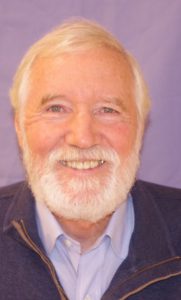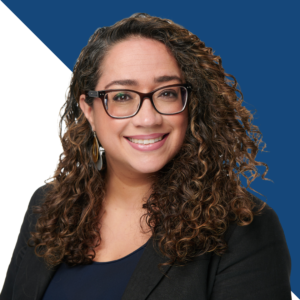
 Understanding Charter Schools
Understanding Charter Schools
DMA member Cliff van Voorhees and LION Charter School CEO Celia Sosa will help us understand Charter Schools, in general, and the how it works at LION, as a specific example. They’ll address general questions like: do they suck money from public schools; why do unions oppose them; how are they different from district public schools; are they effective; and, should they be encouraged. Then they’ll discuss specific challenges and conflicts faced by LION including: conflicts with other public schools with which they shared a building; teacher and student recruitment; college readiness and applications; impact on the local community; and alumni experience in college. And they’ll answer questions about anything else you might like to ask!
The relevant parts of Cliff van Voorhees’ bio start when he was a student at Columbia Business School. At that time, he became a Big Brother to a 12-year-old boy from Harlem and spent many hours with him over a three-year period. After graduating from Columbia, Cliff went to work for the Interracial Council for Business Opportunity in the Teresa Towers on 125th Street and Seventh Avenue, where he helped minority entrepreneurs raise financing for their businesses. When doing that work, he concluded that what was needed most in the community was better schools. Fast forward through 25 years in international banking with stints in Nigeria and England and four years with Instinet Fixed Income, an electronic broker, he found the opportunity to actually do something to address the lack of educational opportunity in the inner cities of New York. On a fulltime basis, he headed up a team of part time contributors to prepare an 800 page application for a charter to run a public school in the South Bronx. After that 2 year application process, a charter was awarded and Cliff became the school’s COO, tending to facilities, transportation, HR, accounting and finance, fund raising and many other aspects of the school. He retired from Hyde Leadership Charter School after serving in the school for about 6 years.
Celia Sosa serves as the Chief Executive Officer at Leaders In Our Neighborhood (LION) Charter School. She began her work at LION in 2007 as a history teacher, which was followed by 12 years of service as the High School Director. She participated in the Charter Center’s Principal Support Network and was awarded an Emerging Leader Fellowship in 2009. During her time at LION, she has been involved in developing curriculum, chairing the social studies department, and many extracurricular activities. Some of these activities included developing and organizing the Dynamics of Difference Committee, student interview panels, wilderness trips, and coaching the school’s track team.
Before joining LION, Celia worked as a teacher at The Lorge School and The Urban Assembly School of Business for Young Women. At each organization, she took on leadership roles becoming a Director of School Culture and Dean of Students. Additionally, while at Binghamton University, Celia was a co-founder of the local chapter of INCITE! Women of Color Against Violence. She earned a Bachelor of Arts and a Master of Arts in Philosophy from Binghamton University and was awarded the Clifford D. Clark Fellowship for work on her master’s degree. She received a second master’s degree in education with a concentration in adolescent social studies from Pace University. Celia was a 2005 Teach For America corps member.
Speaker Summary
Cliff and Celia made an enlightening presentation on charter schools, in general, and told the story of the creation and success of the LION school as a powerful proof point of the difference an effective charter school can make for its students and school community.
Cliff opened by explaining what charter schools are and how they get established through the state application process. He answered some basic questions regarding their role in public education, impact on public school funding, differences versus other public schools, why there is resistance to them among teacher unions, and their effectiveness. He explained that charter schools are established by state laws that vary by state — they aren’t even allowed in some states. The primary reason for their existence is to provide public school choice since, contrary to many peoples’ understandings, charter schools are public schools; on the other hand, school voucher programs are about helping pay for private schools. In this context, charter schools do not drain resources from other public schools, they just provide an alternative. And, since these schools must outperform other public schools to keep their charters, they not only improve the education of their students, but they also force other public schools in the area to “raise their game” to compete with the charter schools for students. To this end, Cliff explained that there are many measurements other than test scores that can be used to evaluate whether charter schools are effective at meeting their educational goals, but using standardized tests as a proof-point, New York City charter schools substantially outperform all other NYC schools and the NY state average on these tests.
Cliff spent some time talking about why teachers’ unions oppose charter schools, and, ultimately, why politics and the strength of teacher unions serve to limit the number of charter schools allowed by a state. He discussed some of the benefits charter schools enjoy such as greater freedom to experiment with different teaching and curriculum approaches and generally greater educational and operational autonomy, while working within the approved charter.
Celia then spoke passionately about LION, which is now the largest charter school in NYC and how, despite its location in the Hunts Point section of the South Bronx that was the country’s poorest school district when LION was established, their students thrive and consistently outperform other low-income public schools and public schools, in general. They produce high school graduation rates in excess of 90%, 3 times the bachelor’s degree rates for their graduates versus the national average for low income-based schools, and an 80% graduation rate for students with disabilities. Celia noted that their student population is among the most economically disadvantaged and reflects the overall school population in terms of students with disabilities, multi-lingual households and other measures that might encumber LION’s success rates, but they haven’t.
Celia discussed the broad LION mission of building students of character and the role of family programs, teacher development and alumni support. She discussed how the focus is on creating well-rounded students with a curricula and school experience that includes the arts, sports, academics and service. In discussing alumni support, Celia noted the College Persistence Fund that was founded/strongly supported by former DMA member Wilder Baker to provide on-going support for LION graduates throughout their college careers. She closed by sharing some stories written by graduating seniors that talked to the role LION had had on their lives and some videos of LION graduates who have moved on to successful college experiences. Throughout her comments, Celia made powerful points about how a supportive yet high-expectation and accountability environment that includes the entire school community (students, teachers, family) enables LION’s success despite the challenges of being in a community where crime, drugs and gang wars are commonplace and easy barriers to positive results.
In an emotional closing, Cliff thanked those who helped and supported his efforts to gain approval to create and build LION into what it is today and announced his goal of creating an endowment for the school to further its mission as part of his go-forward work for the school.
